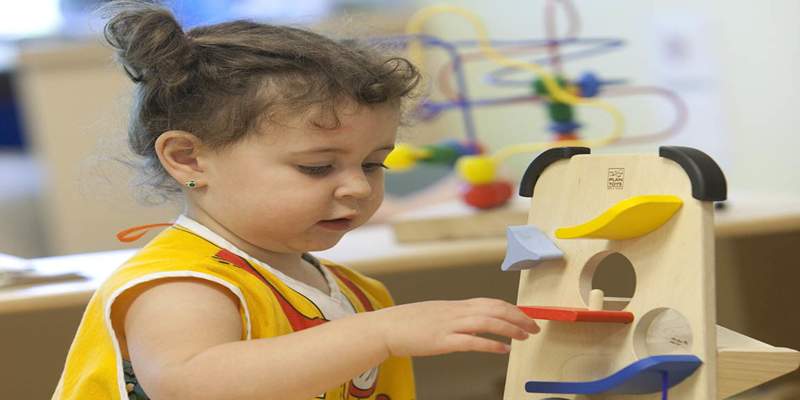Unlocking Potential: How Critical Thinking and Creativity Shape Kids
Critical thinking and creativity are two of the most important skills a child can develop. They help kids solve problems, think independently, and come up with new ideas. By encouraging these skills from a young age, parents and educators can set children up for success in school and beyond. In this article, we’ll explore why these abilities matter and share simple ways to nurture them in everyday life.
Why Critical Thinking Matters?
Critical thinking is the ability to analyze information objectively, evaluate different perspectives, and solve problems thoughtfully. It's not just about academic excellence but is integral to everyday decision-making and navigating life's complexities.
Children who are taught critical thinking skills from an early age become more confident, self-reliant, and effective problem solvers. They learn to approach situations logically, question assumptions, and make well-informed decisions rather than simply accepting information at face value.
For instance, critical thinkers ask questions such as: Why is something true? What evidence supports this claim? What alternative explanations exist? Encouraging such inquiry in kids helps develop their analytical abilities, fostering deeper understanding and intellectual independence.
The Significance of Creativity
Creativity involves the capacity to think imaginatively, express oneself uniquely, and develop original ideas. Far beyond artistic endeavors, creativity drives innovation across fields such as science, technology, business, and even social interactions.
Children naturally exhibit high levels of creativity, but this creativity often diminishes over time if not actively nurtured. Encouraging creative thinking helps maintain a child's innate curiosity, fosters resilience, and enables flexible problem-solving. Kids who embrace creativity are more adaptable to new situations and can devise innovative solutions to challenges, a crucial skill in today’s fast-paced and competitive world.
Connecting Creativity and Critical Thinking
Though often discussed separately, critical thinking and creativity are deeply interconnected. Critical thinking provides a structured approach to problem-solving, while creativity expands the possibilities considered. Together, these skills complement and enhance each other.
For example, when facing a complex issue, critical thinking helps children identify core problems, evaluate evidence, and structure their thinking logically. Creativity, meanwhile, encourages children to think outside the box, suggesting multiple innovative solutions and alternative approaches. A child skilled in both can tackle challenges more effectively, seeing beyond immediate obstacles to broader possibilities.
How to Encourage Critical Thinking in Kids?

Developing critical thinking in children equips them with the tools necessary to navigate life's challenges thoughtfully. Here are several effective strategies to nurture these essential skills:
1. Encourage Questioning
One of the most straightforward methods to foster critical thinking is encouraging curiosity and questioning. Provide opportunities for children to ask questions and explore answers. Respond thoughtfully, and guide them in evaluating the quality of information they receive.
2. Engage in Meaningful Conversations
Meaningful dialogues about various topics—from simple daily occurrences to global issues—can cultivate critical thinking. Encourage children to express their views, listen actively, and thoughtfully challenge their assumptions.
3. Foster Independent Problem-Solving
Allow children to navigate problems independently whenever possible. Provide guidance and support without immediately stepping in to resolve every issue. This approach promotes self-confidence, analytical thinking, and resilience.
4. Utilize Real-World Scenarios
Applying classroom lessons or theoretical ideas to real-world scenarios can significantly enhance critical thinking skills. Practical examples help children grasp abstract concepts, enabling deeper comprehension and retention.
Strategies for Cultivating Creativity
Creativity empowers children to explore new ideas and possibilities. Employ these practical approaches to cultivate a child's innate creativity:
1. Provide a Stimulating Environment
Create an environment that encourages exploration, experimentation, and risk-taking. Offer diverse resources such as books, art materials, technology, and games to stimulate children's imagination.
2. Embrace Mistakes as Learning Opportunities
Normalize mistakes and failures as natural parts of the creative process. Teach children that setbacks are opportunities for learning and growth rather than indicators of incompetence.
3. Allow Freedom and Autonomy
Giving children space to make independent choices fosters creativity. Allow them autonomy in choosing their activities, topics of interest, and methods of expression, supporting their individuality and inventive spirit.
4. Engage in Creative Play
Creative play, whether through storytelling, role-playing, or arts and crafts, significantly boosts creative thinking. Such activities encourage imagination, self-expression, and innovative problem-solving.
Balancing Guidance with Freedom
Finding the right balance between guidance and freedom is crucial when fostering critical thinking and creativity. Over-guidance can inhibit creativity, making children overly reliant on adult approval, while too little guidance may lead to confusion or frustration.
Encourage children to explore freely within clear and supportive boundaries. Offer gentle guidance when needed, prompting them to think deeper without providing direct solutions immediately. This balanced approach nurtures confidence, independence, and thoughtful exploration.
Challenges in Developing These Skills

Despite their clear benefits, developing critical thinking and creativity faces certain challenges:
- Educational Pressures: Traditional education systems often prioritize rote learning and standardized testing, which can hinder creativity and independent thinking.
- Fear of Failure: Many children fear making mistakes due to high expectations, reducing their willingness to experiment and innovate.
- Limited Resources: Not all children have access to diverse resources or environments conducive to creative exploration and critical inquiry.
Recognizing these challenges helps parents and educators actively counteract them by providing environments that encourage open-mindedness, curiosity, and innovative exploration.
The Lifelong Impact of Critical Thinking and Creativity
The benefits of nurturing these two crucial skills extend far beyond childhood, deeply impacting personal, academic, and professional success. Individuals skilled in critical thinking and creativity can navigate complex situations, innovate effectively, and contribute meaningfully to society.
In workplaces increasingly defined by rapid technological advancements and globalization, these skills are highly valued. Employers consistently seek individuals capable of analytical thinking, creative problem-solving, and adaptive learning. Therefore, nurturing these abilities early positions children for ongoing success and fulfillment throughout their lives.
Conclusion
Critical thinking and creativity are more than just desirable traits—they're essential skills for thriving in the modern world. As parents, educators, and mentors, the role of nurturing these skills cannot be overstated. Encouraging children to question, explore, and imagine equips them with the tools they need to navigate life's challenges confidently and creatively.
By prioritizing the development of critical thinking and creativity, we empower the next generation of thinkers, creators, and innovators. These children will not only succeed individually but also shape a more innovative, adaptable, and thoughtful future for society as a whole. Investing in these skills today means fostering the leaders, visionaries, and problem-solvers of tomorrow.












